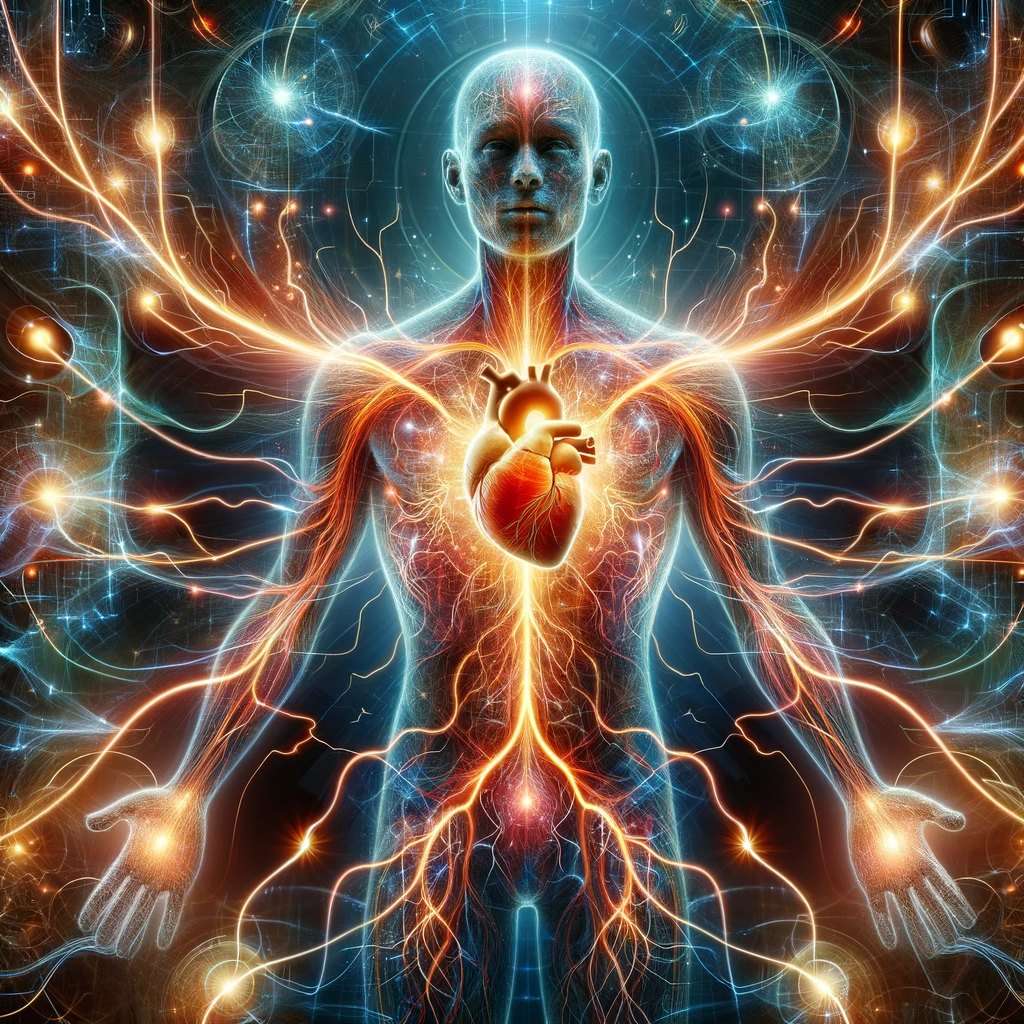The Electric Heart: How Our Bodies Generate Electricity
A Living Power Plant: The Human Body
Did you know that your body is like a small power plant, producing its own electricity? It might sound like science fiction, but it's a fact of biology. This electricity is crucial for the functioning of our organs, especially the heart. Let's explore how our bodies generate this amazing energy.
The Heart: A Natural Electrical Marvel
Understanding the Heart's Electrical System
The heart is more than just a pump; it's an electrical system too. This organ uses electricity to keep itself beating in a regular rhythm. The heart's electrical system is what tells it when and how to beat, ensuring that blood is circulated throughout the body efficiently.
How the Heart Creates Electricity
The heart generates electricity through special cells in a part of the heart called the sinoatrial node, often called the body's natural pacemaker. These cells create electrical impulses, which travel through the heart, causing it to contract and pump blood. This process repeats itself with every heartbeat.
The Journey of a Heartbeat
From Impulse to Action
The electrical journey that results in a heartbeat starts in the sinoatrial node. The impulse it generates moves through the heart's chambers, causing them to contract. This electrical signal is precisely timed to maintain a regular heartbeat.
The Role of Electrolytes
Electrolytes, like potassium, sodium, and calcium, play a crucial role in the heart's electrical activity. These charged particles help carry the electrical impulses across cells. An imbalance in electrolytes can disrupt the heart's rhythm.
The Body's Electrical Network
Electricity Beyond the Heart
While the heart is a major electrical hub, it's not the only part of the body that uses electricity. Nerves also use electrical signals to communicate sensations and control muscle movements. This bioelectricity is essential for our body to function properly.
Electrical Communication in the Body
Our nervous system operates as a vast network of electrical wiring, sending signals between the brain and different body parts. These electrical impulses travel at high speeds, enabling quick responses to stimuli.
Measuring the Heart's Electricity: The ECG
The Power of an ECG Test
An Electrocardiogram (ECG or EKG) is a medical test that measures the electrical activity of the heart. It's a crucial tool for doctors to assess the heart's health and detect any abnormalities in its rhythm or structure.
How an ECG Works
During an ECG, small sensors are attached to the skin on your chest and sometimes limbs. These sensors pick up the electrical signals produced by your heart and record them as wavy lines on a monitor or paper. Each wave in the ECG represents a different part of the heartbeat.
The Miracle of Bioelectricity in Healing
The Body's Natural Repair System
Our body's ability to produce electricity is not just limited to everyday functions like heartbeats and nerve signals. Bioelectricity also plays a role in healing. For example, when we get a cut, electrical signals help guide skin cells to grow back together.
Exploring Bioelectric Treatments
Scientists are exploring how bioelectricity can be used in medical treatments. This includes research into regenerating tissues or organs and treating certain diseases by manipulating the body's electrical signals.
Electricity and Heart Health
Keeping the Rhythm Going
Maintaining heart health is crucial for ensuring that its electrical system works smoothly. This includes regular exercise, a balanced diet, avoiding smoking, and managing stress. Keeping your heart healthy helps maintain its natural rhythm and prevent conditions like arrhythmias, where the heart beats irregularly.
When the Heart Needs a Helping Hand
Sometimes, the heart's natural pacemaker doesn't work properly, leading to irregular heartbeats. In such cases, doctors may use artificial pacemakers. These small devices are implanted in the chest to help regulate the heartbeat using electrical impulses.
The Future of Heart and Electrical Research
Innovations in Cardiac Care
The field of cardiac electrophysiology, which studies the heart's electrical system, is constantly evolving. Researchers are developing new ways to treat heart rhythm disorders and improve pacemaker technology, enhancing the lives of those with heart conditions.
Electrical Insights for a Healthy Heart
Ongoing research in bioelectricity promises to unlock further mysteries of the heart and other organs. This could lead to breakthroughs in preventing and treating heart disease, one of the leading causes of death worldwide.
Conclusion: Celebrating the Heart's Electric Power
The Wonder of the Human Body
The heart's ability to produce electricity is a remarkable aspect of the human body. It's a perfect example of how nature combines chemistry, physics, and biology to create something as essential as the heartbeat.
A Journey of Continuous Discovery
As we continue to learn more about the heart's electrical system and bioelectricity in general, we open doors to new medical advancements and a better understanding of our own bodies. The study of the heart's electricity is a journey of continuous discovery, reminding us of the intricate and amazing nature of life.










